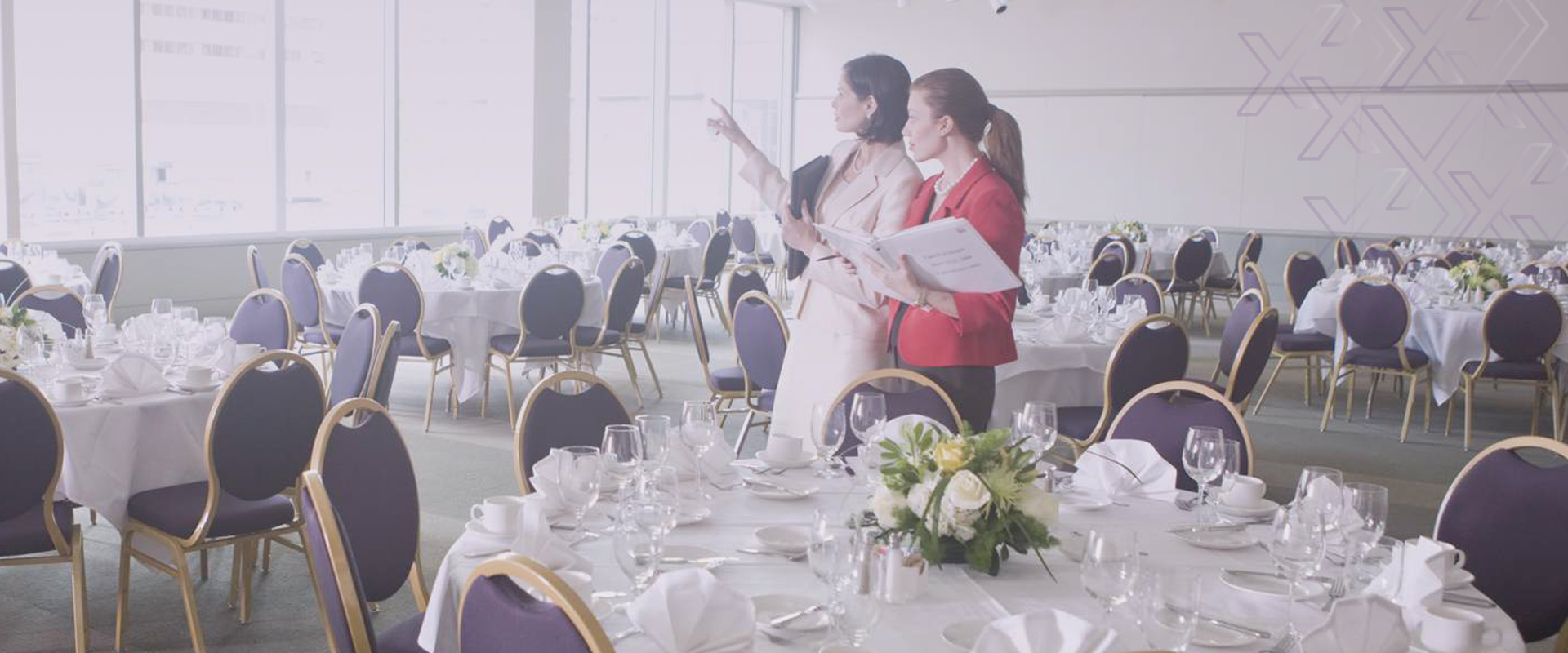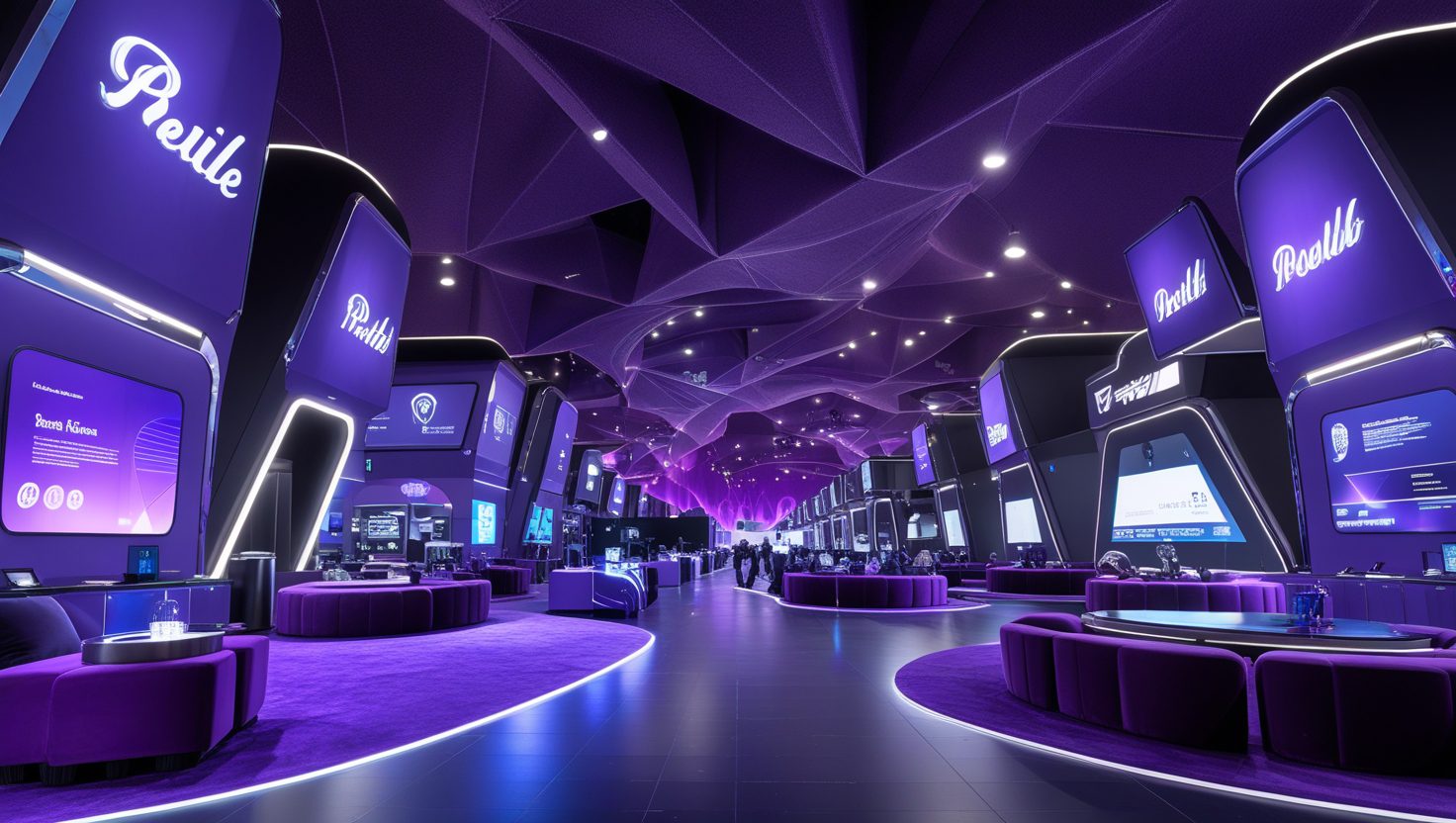Event planning and management is one of the most crucial activities that contribute to enhancing public relations, marketing, and building a company’s identity. Whether you’re a business owner or an individual looking to host an exceptional event, you’re likely aware of the importance of careful planning and professional execution to ensure success. Whether you’re planning to organise and manage an event or work on a special occasion, a successful event requires detailed attention to everything, from setting objectives to designing eye-catching booths and managing attendees.
What are Events?
Events, or “events” as they’re commonly called, are occasions carefully planned to achieve specific objectives such as promoting a brand, launching a new product, enhancing public relations, or even celebrating special occasions like weddings and conferences. The nature of the event varies depending on its purpose, and includes various types such as conferences, trade shows, celebrations, festivals, and official meetings.
Organising and managing events is a powerful tool that can be used to achieve marketing and personal goals. Large companies often rely on specialised event management companies to professionally execute their events, leaving a strong impression on the attendees.
One of the important aspects of organising exhibitions and events is focusing on designing the event to suit the target audience. For example, wooden booth designs with innovative ideas can be an effective way to grab attention at trade fairs. Carefully designed booths represent the brand’s identity and help create a unique experience for the attendees.
Moreover, managing and organising events requires high-level skills including prior planning, selecting the right suppliers, and coordinating between all teams to ensure smooth workflow. The main goal of any event is to provide an unforgettable experience for attendees, whether it’s about enhancing knowledge through conferences or building relationships through exhibitions.
So, whether you’re planning a small event or a large-scale one, success requires collaboration between event planning experts and trusted partners to ensure excellence and professionalism.

Steps for Planning and Managing Events
Organising and managing events requires specific steps to ensure their success and meet the desired objectives. These steps include prior planning, precise execution, and post-event evaluation. Here are the most important steps you should follow:
-
Define the Main Objective of the Event
Every event starts with a clear goal. Whether you want to promote a product, build business relationships, or celebrate a special occasion, the objective must be well defined. The objective is the compass that guides all the details of the event planning and management process, ensuring efforts are focused in the right direction. -
Identify the Target Audience
Who are the attendees? Answering this question helps determine the nature of the event, the content to be presented, and even the design of the booths and venue decor. Understanding the audience ensures the experience meets their expectations and increases engagement. -
Create a Clear Action Plan
Good planning is the key. You should prepare a detailed timeline that includes all tasks, such as selecting the venue, contacting suppliers, and coordinating teams. Event planning and management by specialised companies significantly contribute to adhering to the plan and achieving the desired results. -
Choose the Venue and Prepare Infrastructure
Choosing the right venue is a key part of any successful event. The location should be chosen based on the type of event and the expected number of attendees. In addition, setting up the venue with innovative booths using creative ideas for trade shows can make the event more attractive. -
Marketing and Promoting the Event
For the event to be successful, news of it must reach the target audience. Social media marketing, advertisements, and formal invitations are effective tools for attracting attendees. -
Execution and Follow-Up on the Event Day
On the event day, everything must go according to plan. This includes managing the team, ensuring the venue is properly prepared, and interacting with attendees to ensure their satisfaction. -
Post-Event Evaluation
After the event, it’s essential to collect attendee feedback and analyse performance. This evaluation helps in improving future events’ performance.
By following these steps, you can achieve a successful event that meets your needs and leaves a positive impact. Organising exhibitions and events requires commitment and professionalism, which can be easily achieved by relying on specialised companies.
7 Goals for Event Planning and Management
The process of organising and managing events is not just a random activity. It’s an effective means of achieving strategic objectives that benefit both companies and individuals alike. Whether you’re planning a trade exhibition, conference, or private party, there are key goals that must be achieved to ensure the event’s success. Here are 7 main goals of event organisation:
-
Brand Enhancement
Events are a powerful tool for promoting a brand. Using creative trade show booth designs and unique setups, companies can leave a lasting impression on attendees and raise brand awareness. -
Building Professional Networks
One of the key goals of event organisation is creating a conducive environment for networking between businesses, clients, or individuals. In-person meetings contribute to building long-term relationships. -
Increase Sales
At trade fairs, events provide the perfect opportunity to showcase products and services to a targeted audience. Designing attractive booths can be a key factor in attracting customers and boosting sales. -
Launch New Products and Services
Launching a new product at a distinguished event ensures attention and positive interaction from the audience. Event management companies help you create an event that highlights your product’s features in a remarkable way. -
Provide Educational Content
Conferences and seminars are used as a means of delivering educational or training content to attendees. This goal enhances the value of the event and leaves a positive impression. -
Increase Trust and Credibility
Professional management of an event enhances trust among clients and investors in the company or organising entity. Successful events are seen as evidence of efficient organisation and management. -
Measure Performance and Analyse Results
Events offer an opportunity to gather data and feedback from attendees. This data is used to assess performance and make strategic decisions to improve future events.
Each of these goals reflects the importance of organising exhibitions and events in a professional and innovative manner. Relying on effective event planning and management ensures the achievement of these objectives and increases the chances of success in any event.
Top Tips for Event Planning and Management
To ensure the success of any event, there are essential tips to follow when organising and managing events. These tips help you improve the attendee experience, achieve your goals effectively, and avoid common mistakes. Here are the key tips you should follow:
-
Early and Comprehensive Planning
Start planning the event well in advance. Early planning gives you enough time to tackle any unexpected challenges. Make a detailed plan covering all aspects, from selecting the venue to designing the booths and décor. -
Define Objectives and Target Audience
It’s important to clearly define the event’s goals and the target audience. Knowing what you want to achieve helps allocate resources effectively and ensures the event meets attendees’ needs. -
Choose the Right Venue
The venue plays a major role in the event’s success. Ensure the venue is appropriate for the size of the audience and the nature of the event. If you’re hosting an exhibition, make sure there’s enough space for creative booths. -
Work with a Professional Team
Collaborating with a professional team or a specialised event management company ensures the event is executed professionally. The team handles logistics and creativity, ensuring smooth event flow. -
Use Modern Technology
Utilise digital tools and modern technology to facilitate operations. Using registration apps, audience management tools, and advanced display technologies enhances the attendee experience and streamlines event management. -
Attention to Small Details
Small details can be the difference between a successful and mediocre event. Whether it’s venue décor, audio systems, or booth design, every detail should be given careful attention. -
Effective Marketing
No event can achieve its goals without good marketing. Use social media and advertisements to reach your target audience. Good marketing ensures a sufficient turnout and increases the event’s effectiveness. -
Post-Event Evaluation
After the event, collect feedback from attendees and analyse performance. This analysis helps identify strengths and weaknesses and ensures the improvement of future events.
Following these tips ensures you will achieve success in your event and leave a long-lasting positive impression. Specialised companies, such as Luxe, offer professional support to ensure your event is exceptional and meets your needs.
How Luxe Ensures Successful Event Management
When it comes to event planning and management, choosing a trusted partner is the first step to success. Luxe is one of the leading companies in event management, focusing on delivering exceptional experiences that meet client needs and achieve objectives. Here are the key reasons why Luxe is the perfect choice for your event:
-
Extensive Event Management Experience
Luxe has years of experience in managing and organising events, enabling them to fully understand client needs. Their experience covers all types of events, from conferences and trade exhibitions to private parties and special occasions. -
Careful Planning and Professional Execution
The success of any event depends on good planning and professional execution. Luxe provides a detailed plan for every event, including goal setting, venue selection, and coordinating with suppliers to ensure smooth operations. -
Creative Design and Unique Experiences
One of Luxe’s key offerings is designing the event in an innovative way. Whether you need unique wooden booths or attractive décor, Luxe’s creative team ensures your event will stand out and grab attention. -
Comprehensive Support from Start to Finish
Luxe doesn’t just offer planning and execution; they provide comprehensive support that includes marketing, attendee management, and ensuring everything runs smoothly on the event day. -
Commitment to Quality and Precision
Quality is the core value of Luxe’s services. They are dedicated to providing the best solutions to ensure a successful event, paying close attention to the smallest details to make sure everything is perfect. -
Solutions Tailored to Your Needs
Whether you’re planning a small or large event, Luxe offers flexible services that fit your budget and goals. Their primary focus is to provide an experience that leaves a strong impression on attendees. -
Outstanding Customer Service
Luxe’s customer service is one of their standout features. Their team is always available to answer questions and assist with every step of the event planning and management process.
Choosing a company like Luxe means you’ll be working with a partner who knows exactly how to bring your vision to life. With an experienced and creative team, your event will be a guaranteed success.
FAQ
-
How are events organized ?
Event planning and management relies on careful planning and professional execution. First, the goal and target audience are identified, followed by choosing a suitable venue and creating a schedule for the activities. Suppliers and specialised event companies are then coordinated to ensure all infrastructure needs, such as booth design and audio-visual setups, are met. Finally, the event is marketed to attract the desired audience, and follow-ups are done on the event day to ensure success. -
How do you organise effective conferences and meetings?
Organising conferences and meetings requires setting a clear agenda that includes the objectives and topics to be discussed. The next step is selecting a suitable venue that fits the number of attendees, along with necessary technology such as screens and sound systems. Creative booth designs are also a good idea if the conference involves product or service displays. Participants’ roles are clearly defined, and time is managed precisely to ensure objectives are met. -
What’s the difference between project management and event management?
Project management encompasses a broad range of activities that can extend over long periods, while event management focuses on organising a specific event within a set timeframe. Event management focuses on logistics and creativity, such as designing the event, choosing suppliers, and promoting it. Project management, on the other hand, involves more complex planning and aims to achieve long-term goals, which may include events as part of a project.





